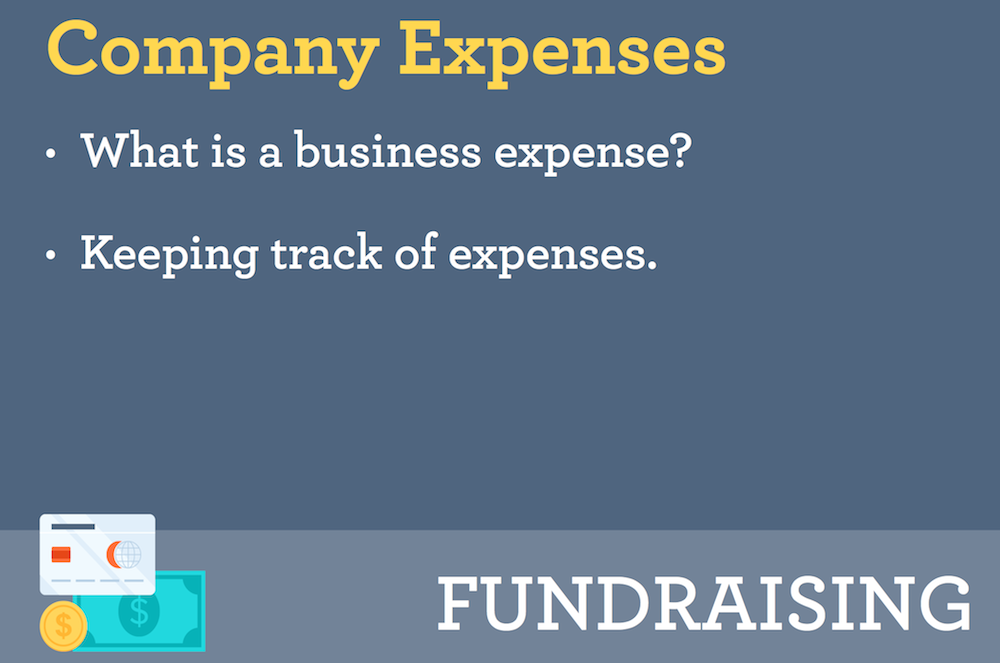How to start a startup: The Basics of Attracting Investments

Stanford course CS183B: How to start a startup . Started in 2012 under the leadership of Peter Thiel. In the fall of 2014, a new series of lectures by leading entrepreneurs and Y Combinator experts took place:
Second part of the course
First part of the course
- Sam Altman and Dustin Moskovitz: How and why to create a startup?
- Sam Altman: How to form a start-up team and culture?
- Paul Graham: Illogical startup ;
- Adora Cheung: Product and Honesty Curve ;
- Adora Cheung: The rapid growth of a startup ;
- Peter Thiel: Competition - the lot of losers ;
- Peter Thiel: How to build a monopoly?
- Alex Schulz: An introduction to growth hacking [ 1 , 2 , 3 ];
- Kevin Hale: Subtleties in working with user experience [ 1 , 2 ];
- Stanley Tang and Walker Williams: Start small ;
- Justin Kahn: How to work with specialized media?
- Andressen, Conway and Conrad: What an investor needs ;
- Andressen, Conway and Conrad: Seed investment ;
- Andressen, Conway and Conrad: How to work with an investor ;
- Brian Cesky and Alfred Lin: What is the secret of company culture?
- Ben Silberman and the Collison Brothers: Nontrivial aspects of teamwork [ 1 , 2 ];
- Aaron Levy: Developing B2B Products ;
- Reed Hoffman: On Leadership and Managers ;
- Reed Hoffman: On the leaders and their qualities ;
- Keith Rabois: Project Management ;
- Keith Rabua: Startup Development ;
- Ben Horowitz: Dismissal, promotion and reassignment ;
- Ben Horowitz: Career advice, westing and options ;
- Emmett Shire: How to conduct interviews with users;
- Emmett Shire: How to talk to users in Twitch ;
- Hossein Rahman: How hardware products are designed in Jawbone;
- Hossein Rahman: The Design Process at Jawbone.
We assume that your company has achieved great success and can easily attract the required amount. However, you should understand that those who throw money at you do it for a reason.
')
First of all, you need to consider reducing your share in the company. For example, if you raise two million dollars with a capitalization of six million, then after the loan is converted into securities, the initial investors will own 25% of the company’s shares. Plus, investors participating in the next round may request another 20% stake in your company. As a result, at this stage you are already losing 45% of your company.
Do you need it? Maybe it is necessary, because even a small amount with a low capitalization is always better than nothing. And if you are satisfied with the proposed conditions, then agree. But know that you need to constantly monitor the progress of the whole process in order to understand what this may ultimately lead to.
In addition, you should always choose experienced investors. They have enough money to invest, and they are well aware that investing in startups is risky.
We often come across companies that say: "My uncle or my friend can invest in this business." They, of course, can give five or ten thousand dollars each. However, it is often these investors who deliver the most problems, because they might think: “Perhaps, I will return my money back. I need a new kitchen. ”
Or: “Investing in startups, it turns out, is not so interesting as shown on TV.” They demand their money back, bringing a lot of trouble to the company. Therefore, ask for money from those who have experience and know what they are doing.
Most importantly, do not complicate anything. In the process of raising funds, use standard documents. Make sure that you work with people who understand what they are getting into, and specify the size of the share that you will end up with.
Carolynn: So you start to attract investment. You know how much your company is worth. You know what documents you need to fill out. It may turn out that you do not understand some of the terms and concepts that your investors use. This is normal, and your task is to find out what they mean.
Do not think that since you agreed on the value of the company, then everything else is unimportant. You need to know what these concepts mean for your company in the long term. At Y Combinator, Kirstie and I constantly hear the founders say, “We did not know that we were signing. We did not know what we agreed to. ” So your task is to figure it out.

Consider four typical investor requests. The first is participation in the management of the company. Some investors will ask you to give them a seat on the board of directors of your company. This is usually due to the fact that either the investor wants to follow up on what his money is spent on, or he or she believes that he can help you in your business.
You need to be very careful when including an investor on the board of directors. Most likely, it would be more correct to refuse him. Anyway, make sure that this person can bring real benefits to the company. The availability of funds plays a big role, but having an investor who can help develop a strategy and indicate the direction of a company’s development is priceless. Therefore, approach the choice of the investor wisely.
The second is advice. Many people can give you advice on work, but only a few can give you really valuable advice. As soon as an investor has invested his money in the company, he or she, in fact, begins to play the role of a consultant, without having any position and, more importantly, without demanding anything in return.
In Y Combinator, we found that every time a famous person becomes an investor in a startup, this person almost always asks the company to become its consultant. We have a company that provides personal protection at the request of clients. One well-known basketball player became her investor, and he asked to be appointed as a consultant. In exchange for his services, he demanded a stake in the company.
His “services” consisted in the fact that he only spoke about this company to other professional basketball players who might need a bodyguard. This star has just invested a decent amount in the company. Why should he not bring the company real benefits? Why does he need extra reward? If an investor really wants to help you, he will not charge for it. An investor who asks for an additional stake for his services is in fact just looking for easy benefits.
The third request - the right to a proportional distribution of shares in the company. It is to maintain its share by buying more shares in the future. The application of such a right is one of the ways to avoid reducing its share in a company: it decreases every time a company sells more and more shares to other investors.
A simple example: suppose the initial investor acquires a package of preferred shares of a company, and after attracting investments, its share is 3%. The next round of funding is coming. The company appeals to the same investor interested in proportional distribution and says: “We need more money. We offer you to buy so many shares in the new round in order to keep your stake in the company at the level of 3%. ”
Investors often ask for these rights. They may not bring you any harm, but as a founder you must know the principle of these rights. In particular, this is due to the fact that when an investor gets rights to proportional distribution, trying to avoid a decrease in his share, the founders may lose an even larger share of the company.
And the last is the provision of information about the company. Investors almost always need to specify in the contract the right to receive certain information about your company. Periodically inform their investors about the state of affairs is quite natural.
At YC, we ask companies every month to inform their investors about how their work is progressing, in order to always have the opportunity to turn to them for help when companies need to make connections or hire new employees. Just do not overdo it. If an investor asks you to provide financial statements every month and talk about the company's progress every week, this is not normal.
Conclusion: if you have decided on the method of financing and estimated the value of the company, this does not mean that everything else is not important. You should be aware of everything related to the financing of your company.
Kirstie: After you managed to attract funding, you will surely find more zeros in your company's bank account than you have ever seen in your life.
Next, you begin to actually spend the funds you received. Production costs are the price to pay for your business. These include employee fees, office rent, hosting, and the cost of attracting customers.
Costs play a very important role in business, since they are deducted from the tax base and, depending on the income of the company, they reduce taxes. On the other hand, non-production costs of the company, which are not taken into account in the tax return, do not allow to legally reduce the amount of taxable profits and, accordingly, taxes themselves.

You can once again look at the situation from the position of a large company: if you work at Google, you are unlikely to buy a toothbrush and toothpaste with a company credit card.
Always remember that this money was given to you by investors. They have entrusted you a large amount and they want you to spend it for the benefit of the company. Do not throw away other people's money. We know several founders who have been dishonest to their investors. For example, one founder received money from investors and went to Las Vegas. Judging by his photos on Facebook, he had a good time there. It is clear that now he does not work in the company. This is the real theft.
It’s not so easy to figure out which costs should be considered as production costs and which ones are not, especially in the first days when you work 24 hours a day. You can ask yourself this question: “If an investor asked me what I spent his money on, and I have to write down all the expenses on points, would I be confused by some of these points?” If they do, then most likely you should not be these costs to production.
Also, do not forget that you have a lot of work, and in principle you don’t need to think about accounting and financial reporting. However, it is very important to keep track of all financial transactions so that your accountant, who composes tax reports, can understand which costs relate to production and which do not.
In any case, they will need your help as a company founder. You can minimize your participation in this process if you keep your documents in a safe place where you can easily go to.
The most important thing - do not go to Las Vegas with the money of their investors. Spend them wisely.
 Announcement:
Announcement:On December 15, from 10.00 to 19.00, the conference “Smart Health” will be held at FRIA City Hall.
The purpose of the conference is to tell startups about the needs and plans of the largest market players in new technologies and software products.
Also, the issue of interaction between startups and big business will be discussed separately.
We invite representatives of the industry, investors, startups and anyone who is interested in healthcare in Russia.
Source: https://habr.com/ru/post/297044/
All Articles